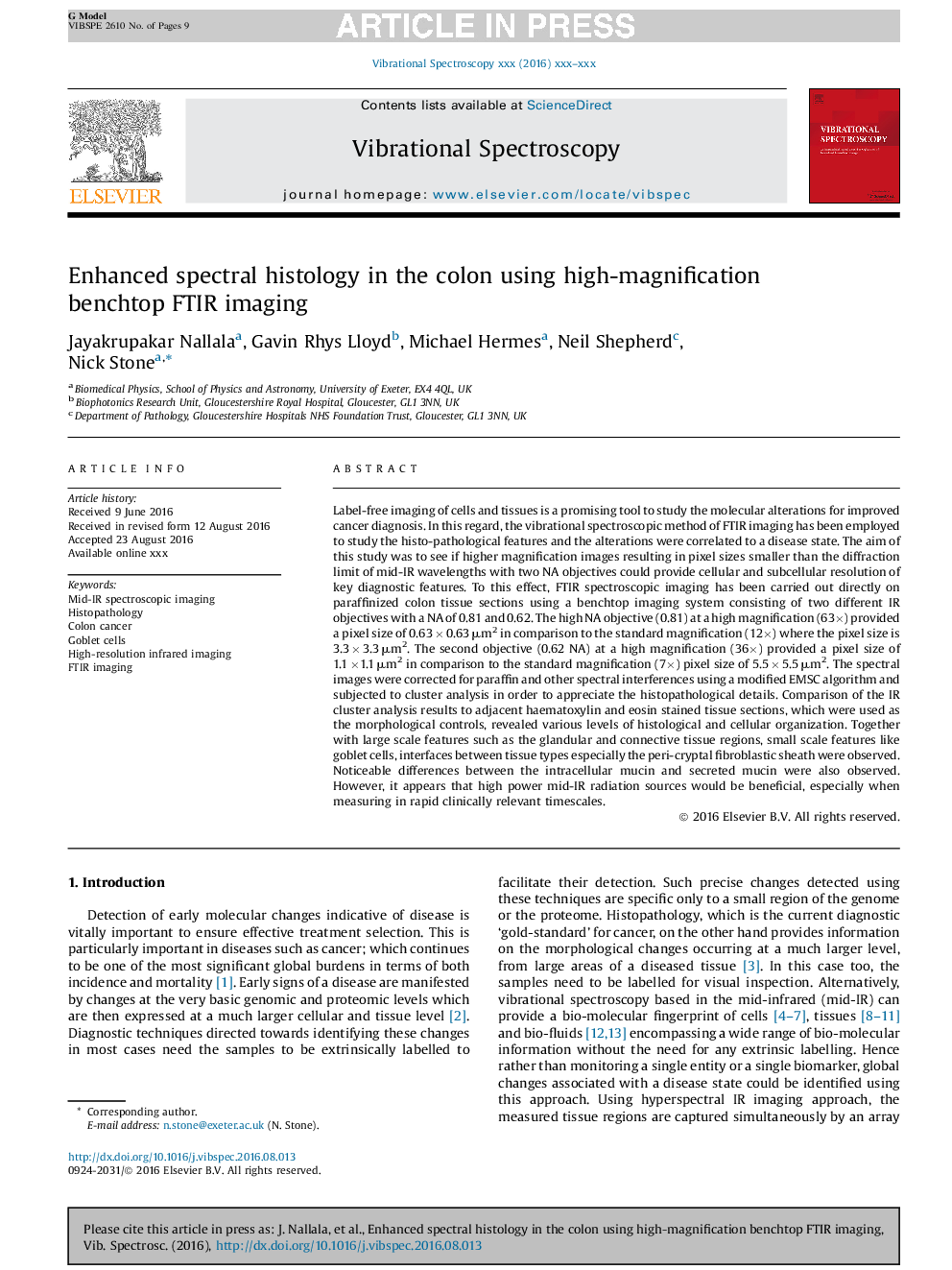| Article ID | Journal | Published Year | Pages | File Type |
|---|---|---|---|---|
| 5141871 | Vibrational Spectroscopy | 2017 | 9 Pages |
Abstract
Label-free imaging of cells and tissues is a promising tool to study the molecular alterations for improved cancer diagnosis. In this regard, the vibrational spectroscopic method of FTIR imaging has been employed to study the histo-pathological features and the alterations were correlated to a disease state. The aim of this study was to see if higher magnification images resulting in pixel sizes smaller than the diffraction limit of mid-IR wavelengths with two NA objectives could provide cellular and subcellular resolution of key diagnostic features. To this effect, FTIR spectroscopic imaging has been carried out directly on paraffinized colon tissue sections using a benchtop imaging system consisting of two different IR objectives with a NA of 0.81 and 0.62. The high NA objective (0.81) at a high magnification (63Ã) provided a pixel size of 0.63 Ã 0.63 μm2 in comparison to the standard magnification (12Ã) where the pixel size is 3.3 Ã 3.3 μm2. The second objective (0.62 NA) at a high magnification (36Ã) provided a pixel size of 1.1 Ã 1.1 μm2 in comparison to the standard magnification (7Ã) pixel size of 5.5 Ã 5.5 μm2. The spectral images were corrected for paraffin and other spectral interferences using a modified EMSC algorithm and subjected to cluster analysis in order to appreciate the histopathological details. Comparison of the IR cluster analysis results to adjacent haematoxylin and eosin stained tissue sections, which were used as the morphological controls, revealed various levels of histological and cellular organization. Together with large scale features such as the glandular and connective tissue regions, small scale features like goblet cells, interfaces between tissue types especially the peri-cryptal fibroblastic sheath were observed. Noticeable differences between the intracellular mucin and secreted mucin were also observed. However, it appears that high power mid-IR radiation sources would be beneficial, especially when measuring in rapid clinically relevant timescales.
Related Topics
Physical Sciences and Engineering
Chemistry
Analytical Chemistry
Authors
Jayakrupakar Nallala, Gavin Rhys Lloyd, Michael Hermes, Neil Shepherd, Nick Stone,
